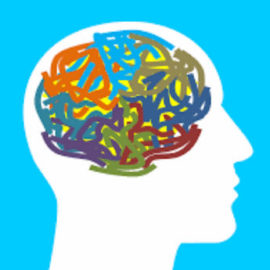

This article is an excerpt from the Shortform book guide to "When Things Fall Apart" by Pema Chödrön. Shortform has the world's best summaries and analyses of books you should be reading.
Like this article? Sign up for a free trial here.
Why do we suffer through terrible ordeals? What are the beliefs we have that are in conflict with reality?
In When Things Fall Apart, Pema Chödrön claims that suffering is a normal part of life. But, where it comes from and why it happens is a mystery.
Below we’ll look at a few common beliefs on why we suffer and what the truth actually is.
Why We Suffer
Navigating hardship, loss, and uncertainty is something we all must do at some point in our lives. Many things can fall apart with or without notice—our images of ourselves, our beliefs, our health or the health of a loved one, important relationships, and so on. When things change for the worse, we can become overwhelmed by negative emotions like worry, doubt, anger, fear, and despair.
Challenging times may be inevitable, but is it inevitable that we suffer because of them? Chödrön argues no. So, why do we suffer? She explains that we suffer because the strong beliefs we hold are in conflict with reality.
(Shortform note: Chödrön doesn’t clarify if people are generally aware of the beliefs she addresses above, though they’re likely unconscious beliefs for many. Many psychology experts contend that we hold strong beliefs consciously and unconsciously—each driving our behaviors and attitudes towards the world and shaping our experiences. Our languages, personal experiences, cultural norms, education, upbringing, religion, and social interactions form our beliefs. Fortunately, you can change your beliefs over time with conscious effort.)
The incorrect beliefs we hold that make difficult times so painful include the following:
False Belief #1: Suffering Is Unacceptable and Should Not Exist
We believe the presence of suffering is unnatural and unacceptable and it signals that there’s something wrong with us and the world. Therefore, we’re convinced that emotional discomfort and pain should be avoided and fixed. Our most overwhelming and painful emotions can feel like personal demons that come in many shapes and sizes—fear, shame, jealousy, rage, loneliness, and the need to place blame.
However, Chödrön explains the Buddhist teaching that suffering is an innate part of life—all living beings on the planet experience pain, loss, confusion, sickness, and death. Emotional discomfort and pain are natural and inevitable, and they aren’t a sign that anything is going wrong. Because we’re not taught to accept suffering and difficult emotions as a natural part of reality, we resist suffering and put tremendous effort into avoiding it, denying it, and trying to fix it. In doing so, we miss out on the beauty and joy of life.
(Shortform note: Many worry that accepting the Buddhist teaching that suffering is a natural part of life will perpetuate suffering. However, in The Art of Happiness, the Dalai Lama and Howard C. Cutler argue that we can’t escape suffering unless we first accept it because ignoring it adds to our suffering (this is similar to Chödrön’s explanation). The Dalai Lama and Cutler add that if we work to accept the inevitability of suffering, we can potentially free ourselves from suffering entirely.)
False Belief #2: We Can Achieve Lasting Security
We believe that if we do all the right things—work, plan, and pray hard enough—we can achieve lasting security, consistency, and predictability in our lives. We feel that what we have and who we are right now are not good enough and that contentment and safety are always just around the corner.
However, Chödrön explains that clinging to the hope that circumstances will last is the root cause of suffering, according to Buddhist teachings. In reality, nothing lasts forever—life is inherently uncertain and always changing. Chödrön says we live in denial of the fundamental uncertainty and insecurity of life, and when we’re confronted with our lack of control, we try to escape the discomfort by avoiding pain and seeking pleasure. In doing so, we inevitably become frustrated, disappointed, and exhausted because we are working against the nature of reality.
(Shortform note: Cognitive psychologists explain why we believe that security and predictability are possible and work so hard to achieve them. We crave predictability and security because it’s hardwired into our bodies. As mammals, we have evolved innate survival instincts. These instincts bias our desires, thoughts, and behaviors toward avoiding pain, seeking pleasure, and finding safety, which usually entails circumstances and environments that are predictable, stable, and where we have some measure of control. Despite our hardwiring, Chödrön teaches that we can learn to tolerate and embrace uncertainty to achieve greater peace.)

———End of Preview———
Like what you just read? Read the rest of the world's best book summary and analysis of Pema Chödrön's "When Things Fall Apart" at Shortform.
Here's what you'll find in our full When Things Fall Apart summary:
- How to find courage and compassion amid pain, loss, and uncertainty
- How to use pain and suffering to grow and transform your life
- Buddhist methods for easing suffering and finding inner peace






